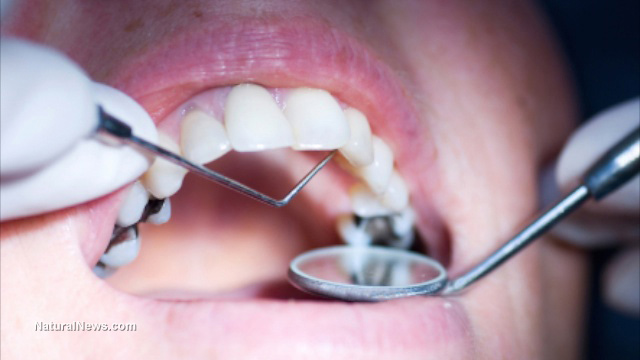Cure for coughs found in chocolate? Study finds that cocoa is effective cough medicine
01/10/2019 / By Zoey Sky

Chocolate is often considered a guilty pleasure because the delicious treat is rich in calories, fat, and sugar. However, study findings have revealed that chocolate can help treat a cough.
Curing a cough with cocoa
In an interview with The Daily Mail, Professor Alyn Morice, who is the head of cardiovascular and respiratory studies at the University of Hull, said that chocolate “can calm coughs.” This may sound too good to be true, especially for chocolate lovers.
Professor Morice, who is also a founding member of the International Society for the Study of Cough, is an independent clinician and she has spent several years studying the mechanism of cough. Professor Morice explained that while this sounds unbelievable, it is a fact that is backed by verified scientific data.
The professor referenced a European study on over-the-counter (OTC) cough remedies. In the study, researchers found that patients who took a new medicine with cocoa had “a significant improvement in their cough and sleeplessness” after only two days, unlike the participants who took standard cough syrup.
Professor Morice added that there are other studies which prove that chocolate can help calm coughs.
Prior to the European study, scientists from Imperial College London discovered that theobromine, an alkaloid in cocoa, can suppress coughs more effectively than codeine. (Related: Dark chocolate is good for your heart.)
Codeine, an ingredient often used in cough medicine, is linked to many negative side effects. The common side effects of codeine include constipation, dry mouth, and nausea or vomiting. The ingredient can also cause serious side effects like difficulty breathing, muscle stiffness, seizures, or symptoms of low blood pressure (e.g., feeling dizzy and tired).
100% organic essential oil sets now available for your home and personal care, including Rosemary, Oregano, Eucalyptus, Tea Tree, Clary Sage and more, all 100% organic and laboratory tested for safety. A multitude of uses, from stress reduction to topical first aid. See the complete listing here, and help support this news site.
Scientists believe that chocolate can effectively calm coughs since cocoa has demulcent properties. A demulcent is any substance that can help relieve inflammation or irritation.
Chocolate is stickier than typical cough syrup, and it can form a more effective coating that helps protect the nerve endings in the throat that trigger your urge to cough. Honey and lemon have the same effect, but the remedy isn’t as effective as chocolate.
Professor Morice advised that drinking hot chocolate won’t have the same effect since the cocoa in the beverage “isn’t in contact with the throat long enough to form a protective coating.”
She concluded, “Slowly sucking on a piece of chocolate may provide some relief, but I think it is the way the chocolate compounds work with other ingredients in the [cough syrup] which make it so effective.”
The health benefits of chocolate
Unlike the sugary variations of chocolate, dark chocolate is full of nutrients that can boost your health. To make sure that the chocolate you eat is actually nutritious, buy high-quality dark chocolate with a high cocoa content. Dark chocolate with a lot of cocoa contains soluble fiber and various minerals.
A 100-gram (3.5-ounce) bar of dark chocolate with 70 to 85 percent cocoa has:
- 11 grams of fiber
- 58 percent of the Reference Daily Intake (RDI) for magnesium
- 67 percent of the RDI for iron
- 89 percent of the RDI for copper
- 98 percent of the RDI for manganese
Dark chocolate is also rich in phosphorus, potassium, selenium, and zinc.
Take note that even dark chocolate, which has health benefits, should still be consumed in moderation. A 100-gram bar of chocolate is too much to eat in one sitting, and it also contains 600 calories and moderate amounts of sugar.
Visit Chocolate.news to read more articles about the health benefits of chocolate.
Sources include:
Tagged Under: Cacao, Chocolate, cocoa, Cough, cough medicine, cough remedies, demulcent, Herbs, natural cures, natural healing, natural health, natural medicine, natural remedies, remedies, research, respiratory health, Theobromine



















